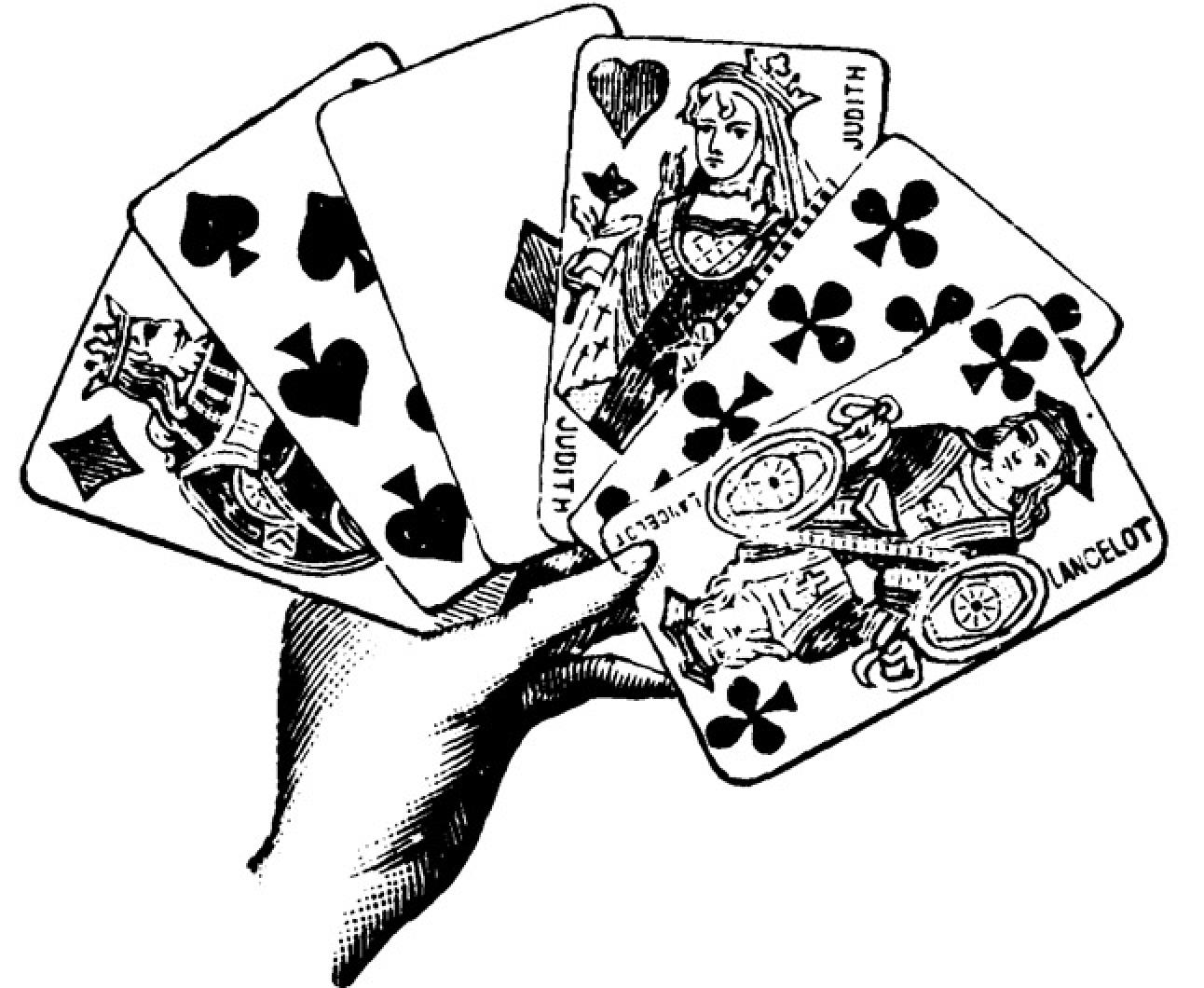Thanks to a loan from Ann Brown, I’ve been reading Mike Lawrence’s Tips on Card Play (Master Point Press). It’s actually an old work that has been revised for modern usage.
A subject that’s getting a lot of attention these days is overtricks, a key to winning in duplicate. Lawrence gives us these hands, with West dealing:
NORTH
♠ K 7 2
♥ Q J 8 3
♦ K 6 2
♣ A 10 5
SOUTH
♠ 9 4
♥ A K 10 7 6 4
♦ A 10 4
♣ K 4
The bidding proceeds as follows:
West North East South
Pass 1♣ Pass 1 ♥
Pass 2 ♥ Pass 4 ♥
All Pass
Opening lead: ♠ J
You allow the♠ J to win. West now leads the ♠ 10, which you don’t cover in case East has an ace doubleton. No such luck: East wins with the ♠ Q and tries to cash the ace. You ruff with the ♥A in case West is out. It looks as if you’re going to lose a diamond and make only four.
Don’t give up. Run off all your hearts in search of a squeeze. Here’s your end position:
NORTH
♠—
♥—
♦K 6
♣ A 10 2
SOUTH
♠—
♥—
♦ A 10 4
♣ K 4
It’s possible that one opponent has the queen-jack of clubs and diamonds and had to throw one. It’s also possible that an opponent has thrown away a minor-suit stopper, squeezing his partner. Cash either ace-king and see what happens.
Lawrence also offers advice on third-hand play. Your opponents have reached a 4♥ contract. Partner leads the ♠ 2:
NORTH (Dummy)
♠ A J 3
♥ 8 4
♦ 9 7 6 4 2
♣ A 9 4
EAST (You)
♠ K 10 5
♥ 9 2
♦ A 8 5
♣ J 10 7 6 3
Declarer plays low. Which spade do you play?
The ♠ 10. If South has the ♠ Q, you still get a trick later. Furthermore, since low leads signal honors, the ♠ 2 lead suggests that partner holds the ♠ Q. If your ♠ 10 wins, play your ♠ K on Trick Two to set up the ♠ Q.
If you’re worried about declarer winning with the queen and throwing spade losers on winners in another suit, note that West’s third- or fourth-best ♠ 2 lead means West has at least three spades. Therefore, South does, too.
Paul Linxwiler gave Lawrence’s Tips on Card Play an “A” in the ACBL Bridge Bulletin. I’d like to have asked Lawrence about a bidding question that arose in a class I was teaching. Your partner bids 1NT (15-17 high-card points), the next player passes and you hold:
♠ K Q 10 5 3
♥ 10 7 6 5 2
♦ 7
♣ J 6
At the time I told the students to bid a 2 ♥ transfer to spades and then pass. The more I thought about it, the stronger the hand got beyond its 6 HCP because of the two five-card majors. Your partnership probably has an eight-card major-suit fit, and your hand has just seven losing tricks. There’s a system with 5-5 hands like this responding to 1NT:
• 3♣ shows 5-5 in the minors and invitational values.
• 3♦ shows 5-5 in the minors and game-forcing values.
• 3♥ shows 5-5 in the majors and invitational values.
• 3♠ shows 5-5 in the majors and game-forcing values.
So I recommend bidding 3 ♥ and leaving the final decision to partner if you agree to use this system.




Comments
Comment policy »